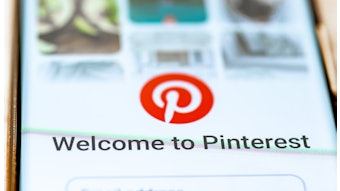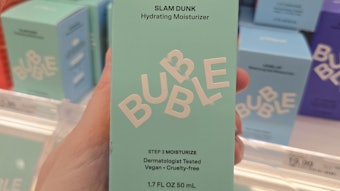
According to McKinsey and Company, generative AI (gen AI) is reshaping the beauty industry. It is estimated to add US $9 to $10 billion to the global economy. Early adopters are already experimenting with gen AI to revolutionize customer engagement, product development and operational efficiency. Scaling these experiments, however, remains a challenge amidst rapid technological advancements.
Leaders who successfully integrate gen AI at scale will gain a substantial competitive edge, leaving slower adopters at risk of losing relevance in an increasingly fast-paced market. In relation, machine learning can empower product developers to quickly replace synthetic materials with cleaner, more sustainable alternatives that are regulatory compliant; learn more about this from our free upcoming webcast, sponsored by Citrine Informatics.
Register now for our free webcast, held Tues., March 18, 2025, at 10:00 AM Central time.
Key Trends in AI for Beauty
- Gen AI Adoption is Accelerating
McKinsey reports that beauty players are leveraging generative AI across the value chain, with applications ranging from product ideation to customer support. The potential gains in efficiency and personalization can significantly elevate both brand performance and customer satisfaction.
- Priority Use Cases Show Greatest Potential
For optimal impact, the firm suggests beauty brands should focus on high-value use cases that align with the sector's fast-paced demands. Per McKinsey, four standout areas where gen AI could yield transformative results include:
- Hyperpersonalized targeting to individual consumer preferences;
- Experiential product discovery; e.g., virtual try-ons and tailored product recommendations enhance online and in-store shopping experiences;
- Rapid packaging-concept development; and
- Innovative product development. Here, machine learning can accelerate ingredient replacements and, in turn, speed to market. (For more on ingredient replacement, register for our free upcoming webcast).
- Customization is Key
To maximize outcomes, brands should consider adapting gen AI tools to meet their unique needs and objectives, rather than settling for off-the-shelf solutions, McKinley suggests.
The Path to Scaling Gen AI in Beauty
 One standout area where gen AI could yield transformative results is in hyperpersonalized targeting to individual consumer preferences.Image by Andrey Kiselev at Adobe Stock
One standout area where gen AI could yield transformative results is in hyperpersonalized targeting to individual consumer preferences.Image by Andrey Kiselev at Adobe Stock
McKinley adds that for meaningful and sustained impact, beauty brands should implement the following imperatives:
- Organizational integration: Align AI tools with your company’s workflows and goals.
- Training and upskilling: Foster AI literacy among teams to improve adoption and productivity.
- Iterative testing: Develop a data-driven culture by testing, refining and scaling AI applications in stages.
Early AI Adopters Maintain Market Relevancy
With gen AI and machine learning opening doors to innovative customer experiences, streamlined operations and groundbreaking products, the potential for the beauty industry is immense. Early movers who seize this opportunity will not only drive growth, but also redefine industry standards. For beauty players still weighing their options, the question is no longer "if" to integrate AI, but rather "how quickly" they can.
Free Webcast: Accelerating the Move to Plant-based Ingredients Using AI
In our upcoming webcast, held Tuesday, March 18, 2025, at 10:00 AM Central Time, Citrine Informatics will explain how the ability to swiftly replace an ingredient with a cleaner, more sustainable alternative is a key competitive advantage; and how machine learning accelerates this process while ensuring regulatory compliance.
Citrine's AI platform employs a patented technology to create a “fingerprint” of the manufacturer's ingredients and the role they play in a formulation. This allows product developers to assess the suitability of alternative ingredients before conducting lab tests, significantly saving time. Two of the top 15 personal care companies are reportedly already leveraging this technology to explore innovative ideas and expedite reformulation.
The webinar will showcase a demo of the Citrine AI Platform and how it can be used to optimize a skin care product’s viscosity, stability and overall liking, while using new bio-based emollients. Participants can access a white paper download outlining the return on investment generated by AI for Citrine's personal care and cosmetics customers.










